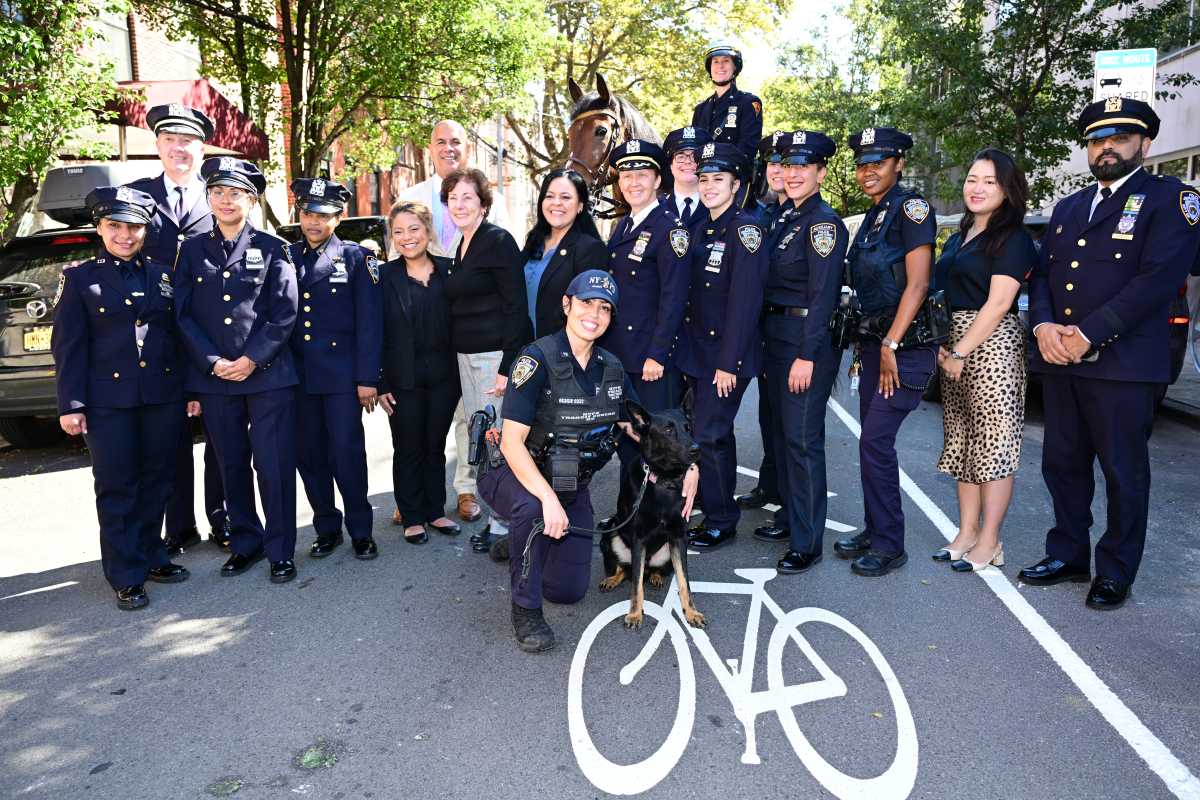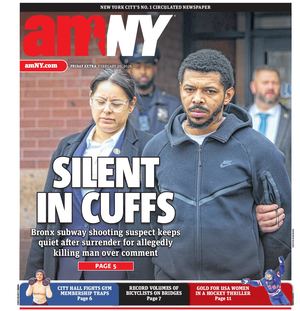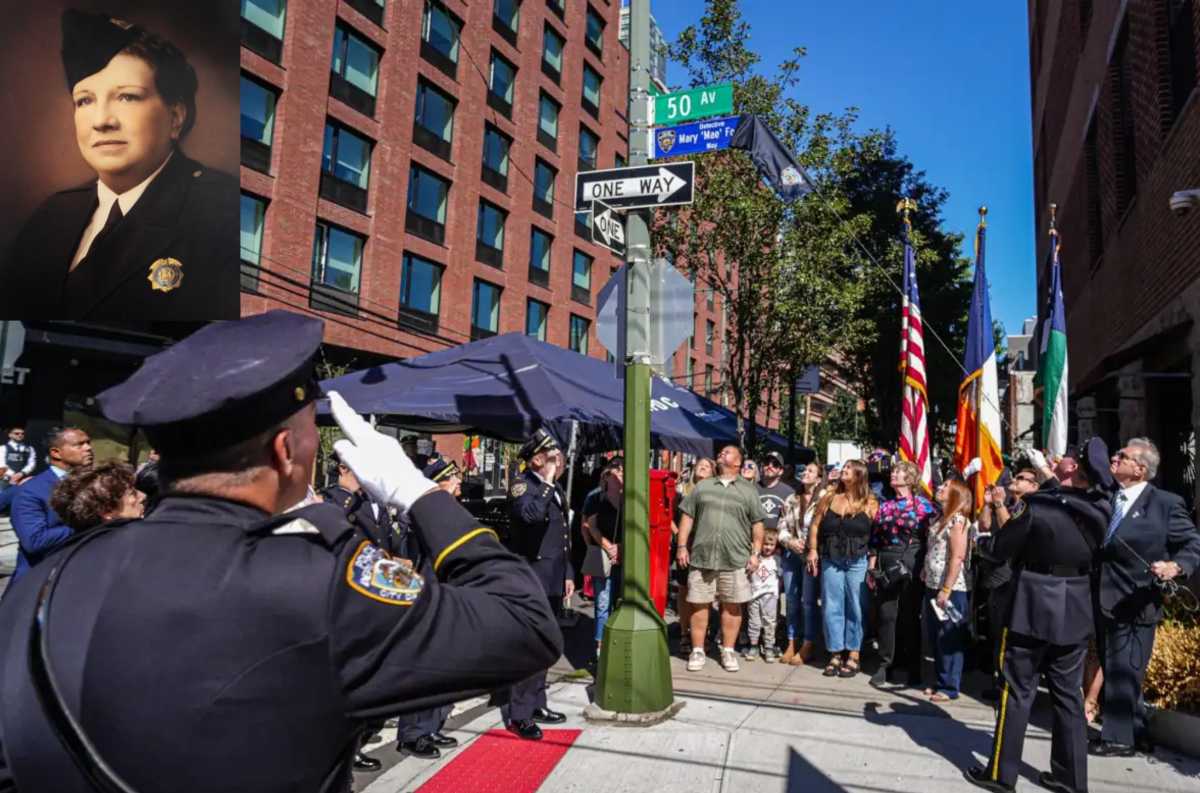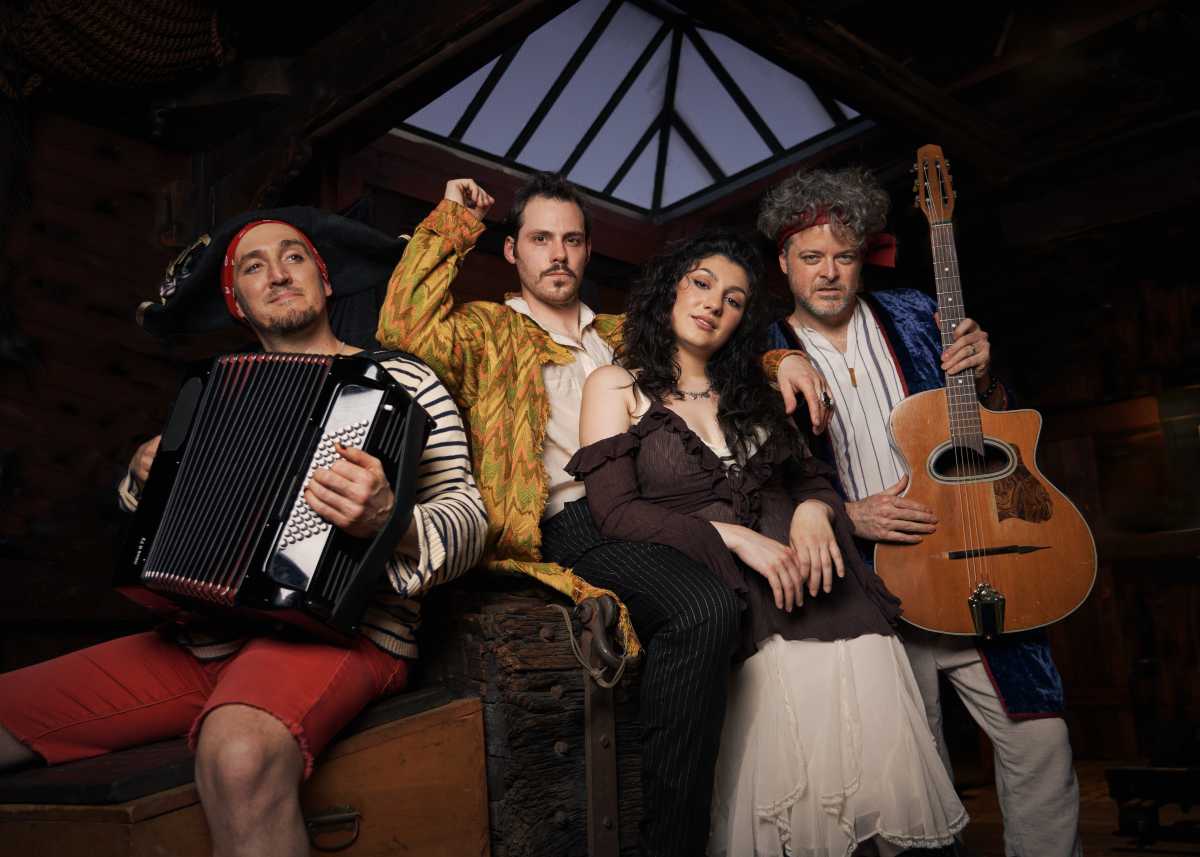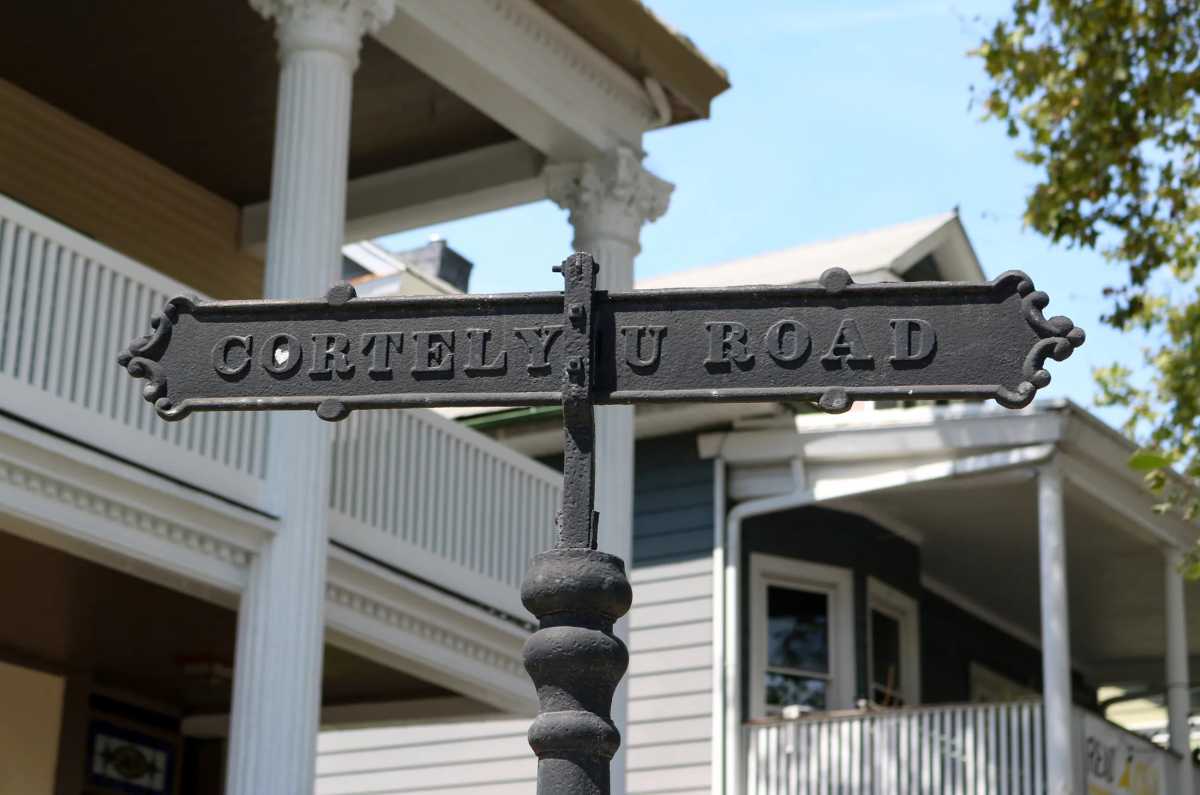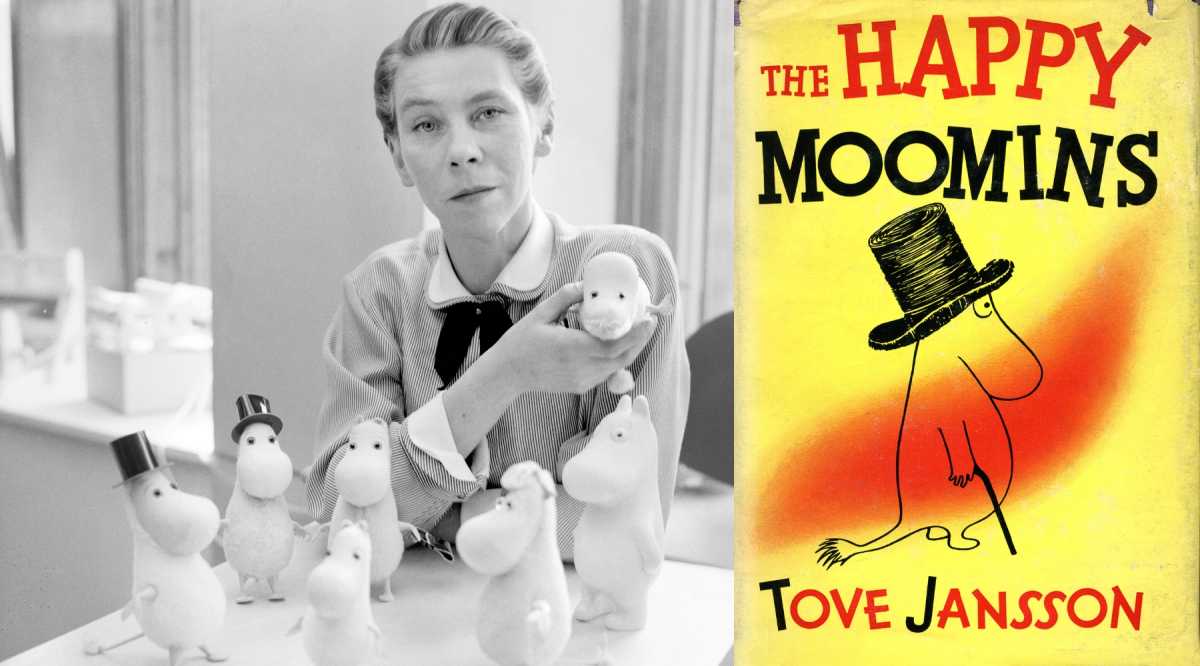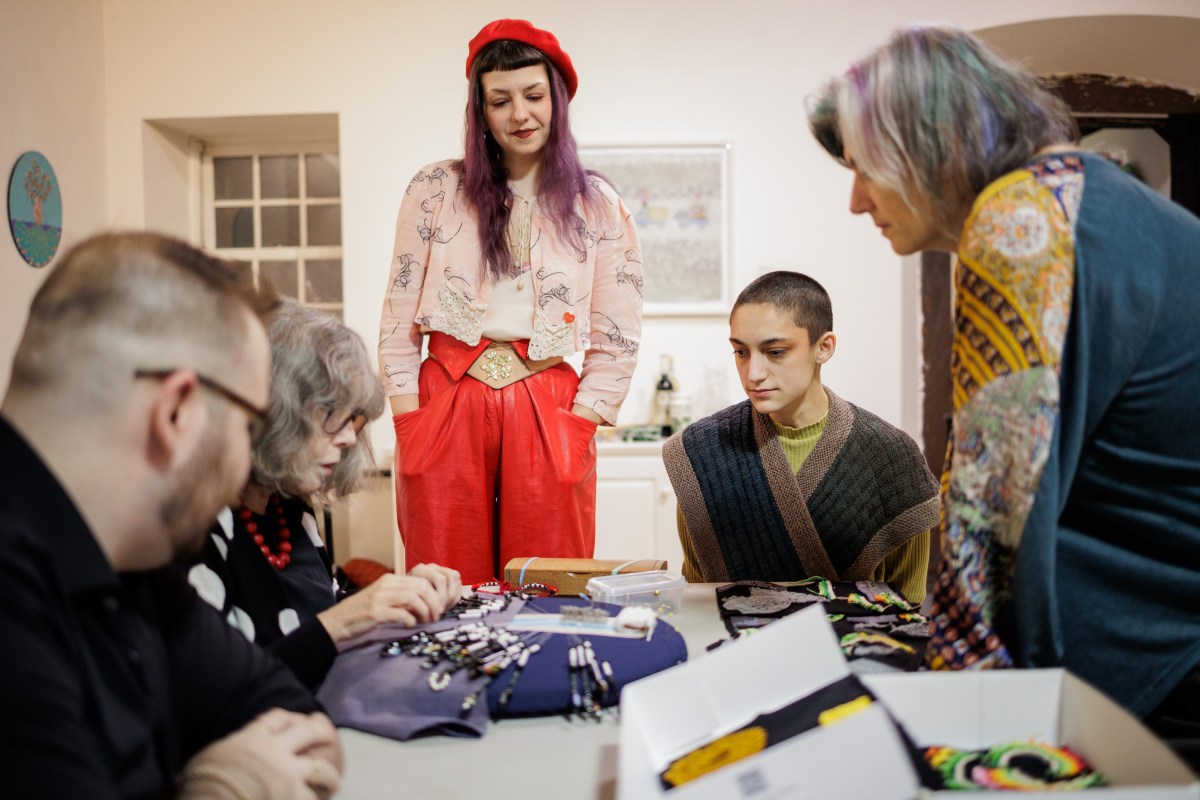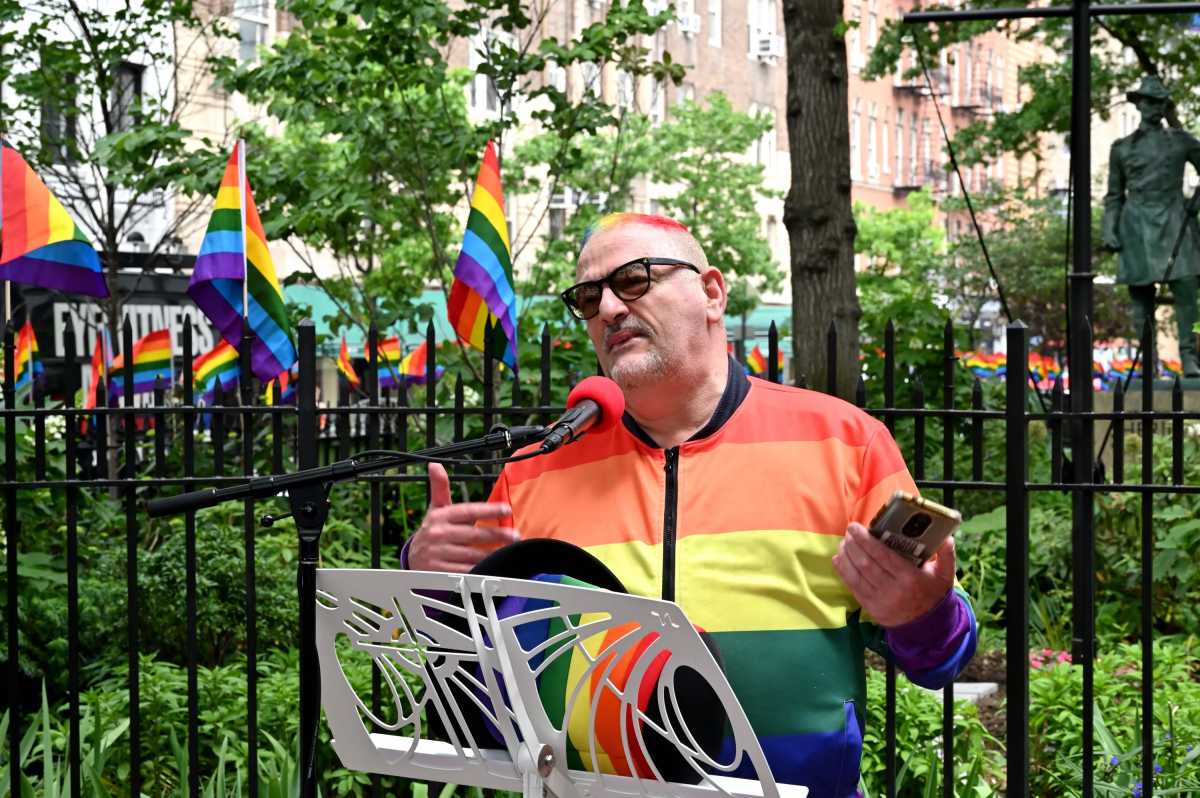Queens cops and community members honored a female police detective with a street renaming over the weekend for a woman who blazed a trail in the NYPD during the early 20th century.
Detective Mary “Mae” Foley was more than just a part of the “Masher Squad” that took down men who abused women. She was a Nazi hunter who stopped fascist infiltrators before World War II, and was instrumental in the criminal investigation of notorious gangster Charles “Lucky” Luciano.
But to her grandson, Bob Carr, she was just Nana.
“She was a tough woman, you know, she didn’t take any guff,” Carr said. “She was a good grandmother, she really was. She was very loving.”
While Carr grew up knowing her as the family matriarch, she was also a leader in a very different kind of family.
She began her journey in the NYPD in 1923 and cuffed predatory men who assaulted women. She rose through the ranks, becoming a homicide detective and even took on Nazi sympathizers known as the German American Bund — an organization affiliated with Nazi Germany that sought to popularize Adolf Hitler in America before the US entered the war following the Pearl Harbor attack in 1941.
If that was not enough of a resume, Foley also investigated infamous mobster “Lucky” Luciano and worked to protect witnesses in the criminal case against him.
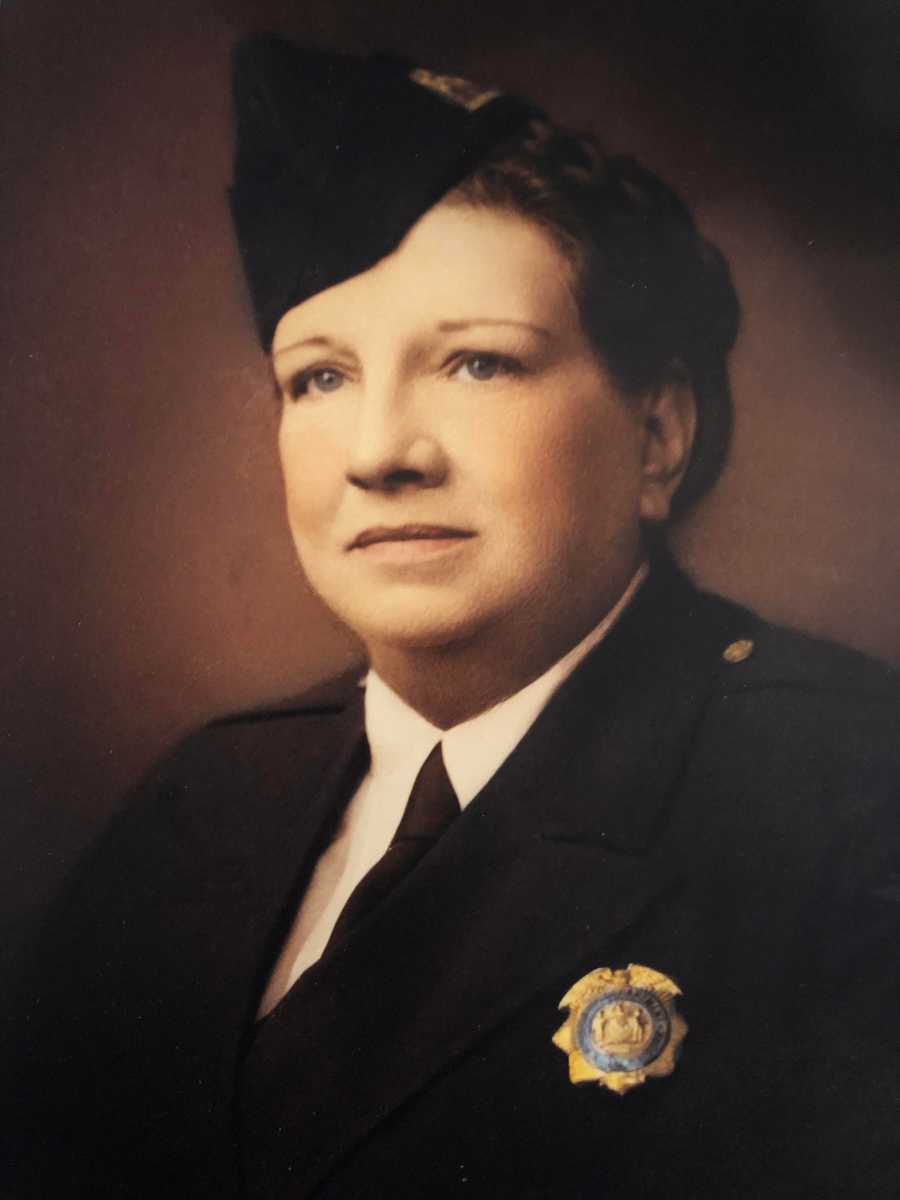
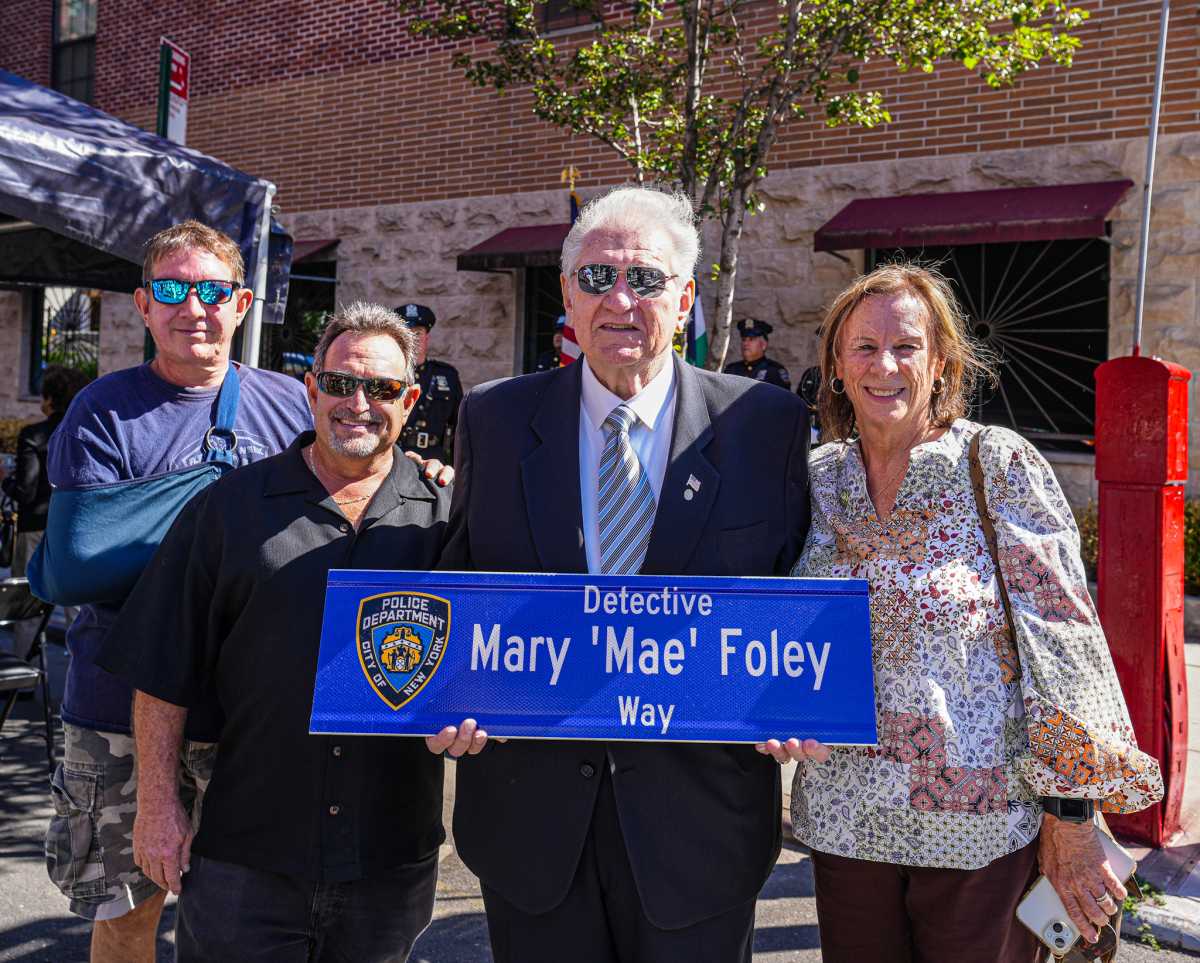
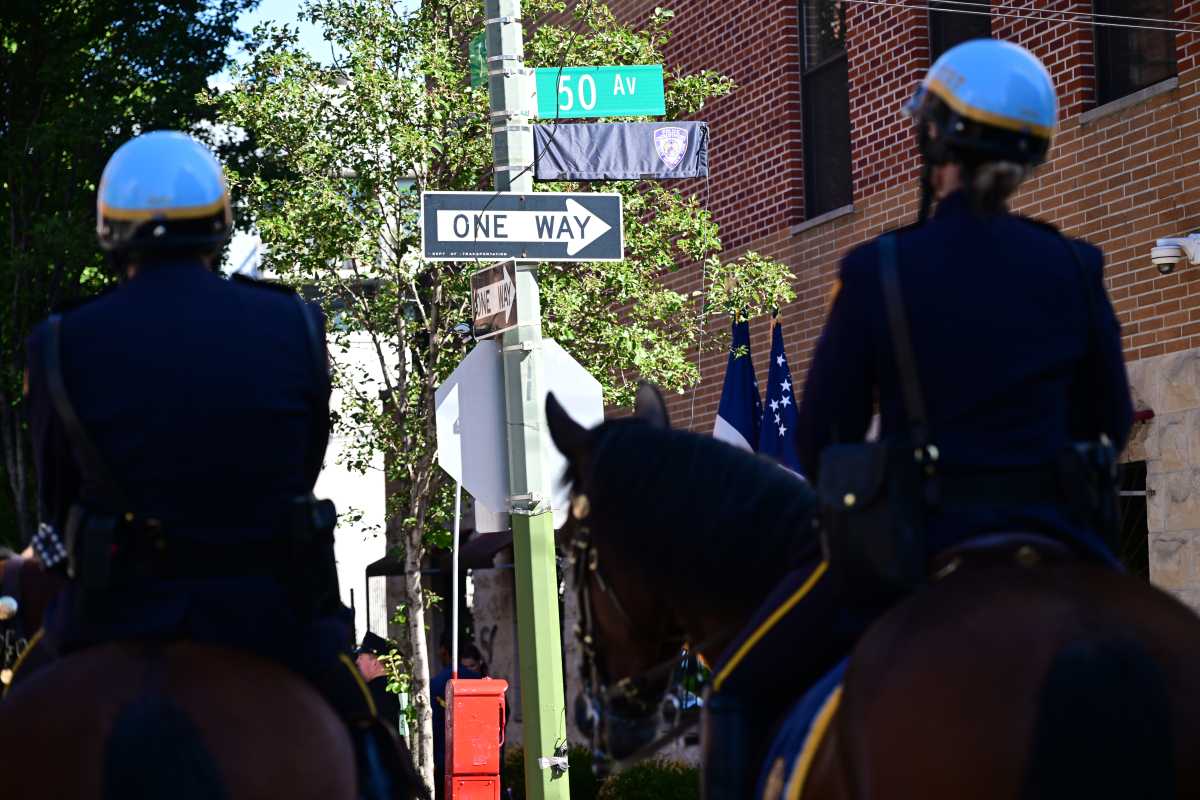
These exploits were detailed in the book The Girls Who Fought Crime by Mari K. Eder, a major general. Eder researched Foley’s life, poring over documents and interviewing family members.
“My primary sources were newspapers, some items from the New York Public Library, the city museum. And also, I had a trip around the city with a tour guide,” Eder said, who also attended the street renaming. “This is someone who made a difference in this city and who did it for generations to come.”
Dozens of cops, including horses from the NYPD mounted division, dogs from the NYPD K9 unit, detectives, elected officials, family members, and community members gathered on the corner of 5th Street and 50th Avenue in Long Island City for the ceremonial street renaming.
The commemoration took place just one block from the 108th Precinct‘s headquarters, where Foley once worked to solve homicides.
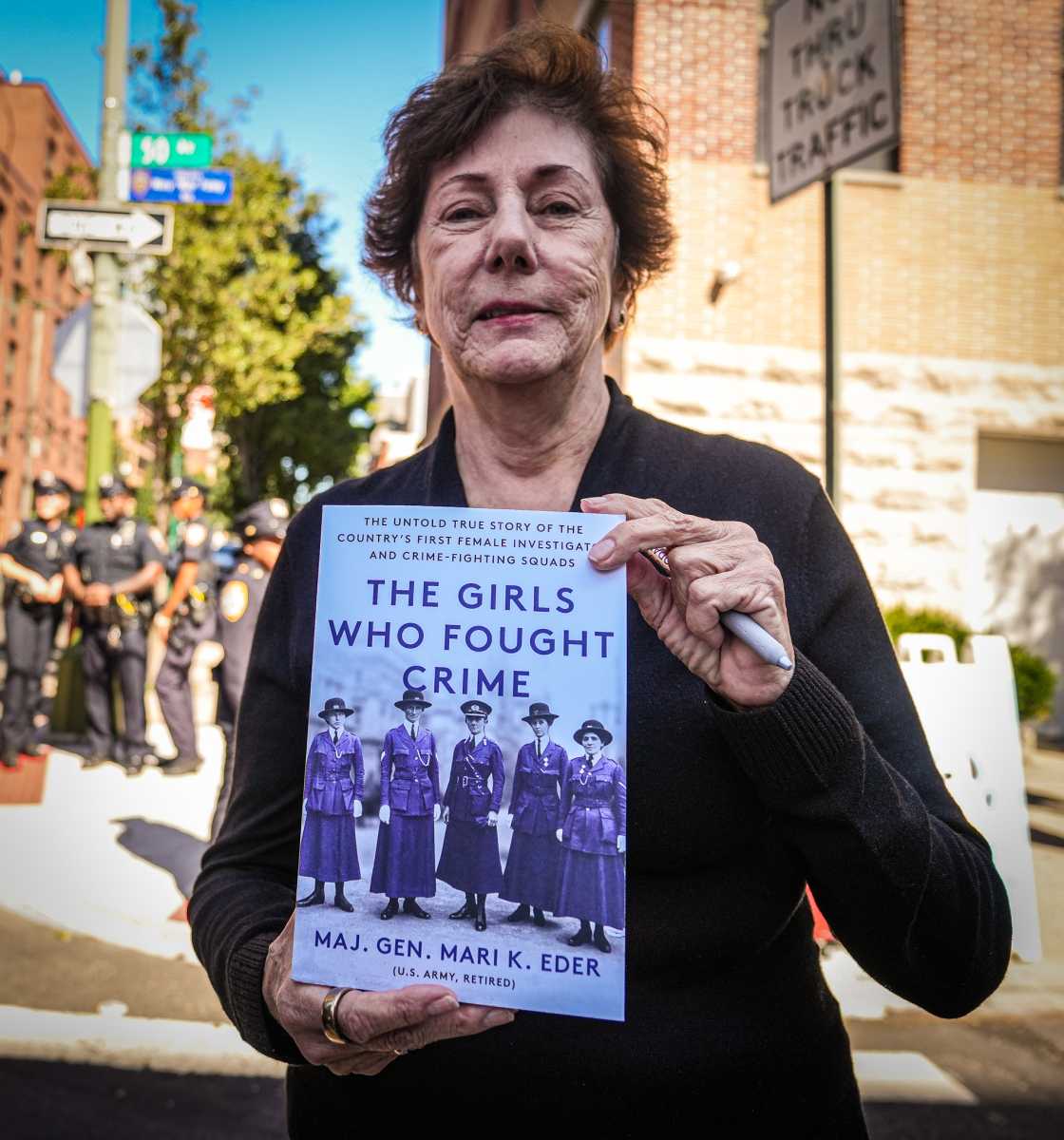
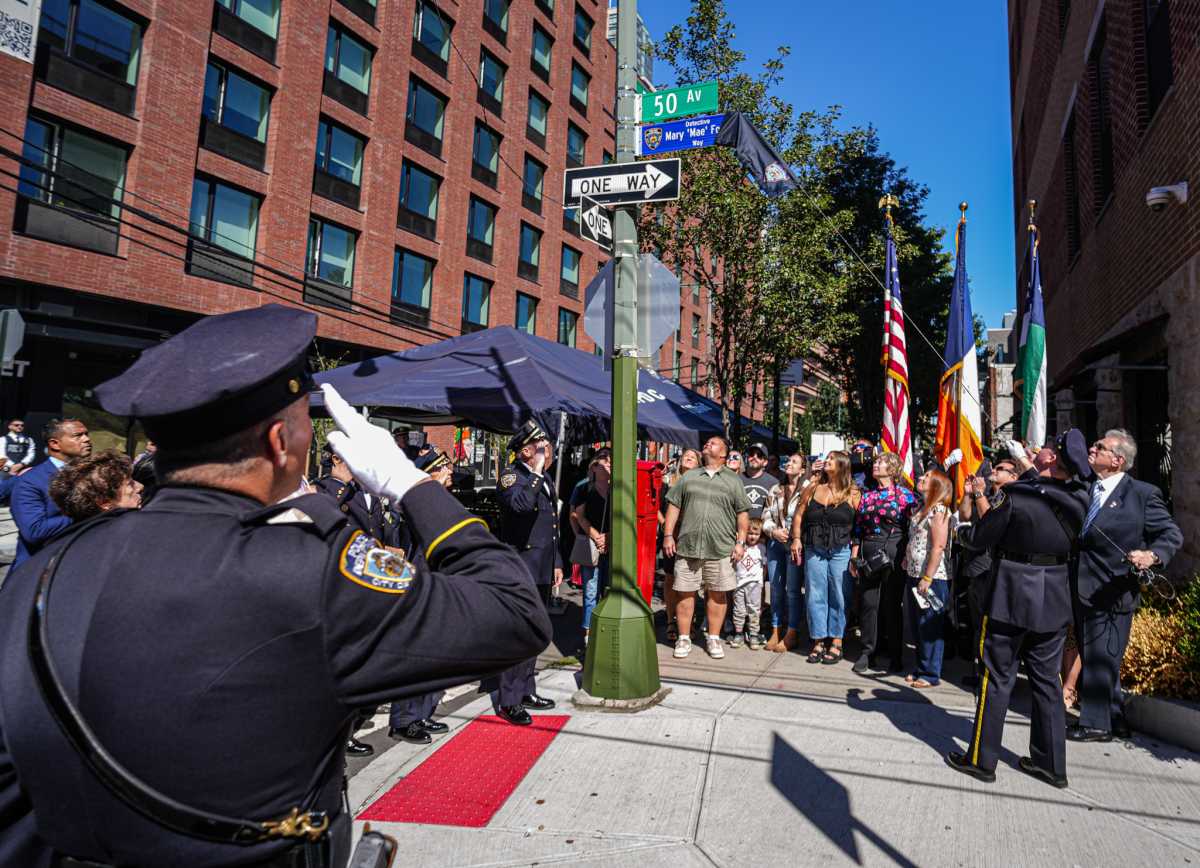
“I could have never imagined this, and it’s overwhelming for me to see this,” Eder added.
Although Foley worked during the 1920s, 1930s, and 1940s, NYPD Deputy Chief Raymond Porteus said he learned that the forerunner was as tough as nails.
“When necessary, she could defend herself. Make one mistake and you might find yourself in a kimura, a jiu-jitsu move,” Porteus said. “Through her own tenacity, determination, and investigative skills, she rose up through the ranks. She investigated the Lucky Luciano case; they trusted her.”
Together, the family and cops unveiled the new street sign reading “Detective Mary ‘Mae’ Foley Way.”
“I hope when people see it, they get their phones and say: ‘Hey, let me check to see who this was,’ and then they’ll see her story online. They can be inspired as well,” Porteus added.
